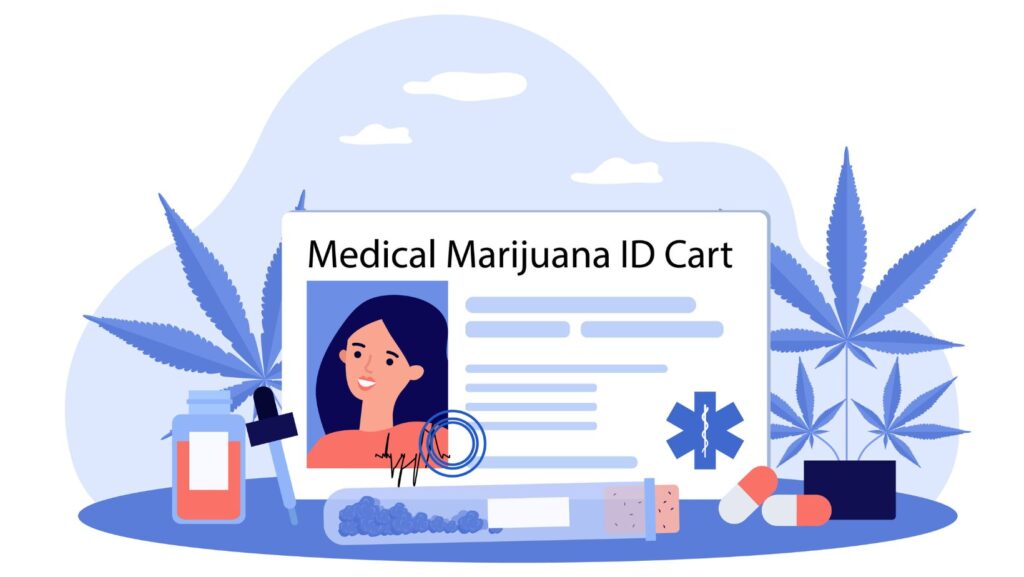Medical marijuana is becoming an increasingly accepted treatment for various health conditions in the United States. As more states legalize its use, obtaining a medical marijuana card can provide access to this form of treatment. However, the process of getting a medical marijuana card can seem daunting, especially for beginners.
This guide will walk you through the steps on how to get a medical marijuana card.
Understanding Medical Marijuana Cards
A medical marijuana card, also known as a cannabis card or MMJ card, is an identification card that allows patients to purchase marijuana for medicinal use. The card is issued by the state and permits patients to buy cannabis products from licensed dispensaries. In many states, medical marijuana patients enjoy certain advantages over recreational users, such as access to higher-potency products and lower taxes.
While the specific requirements for obtaining a medical marijuana card vary by state, the general process involves meeting certain eligibility criteria, consulting with a healthcare provider, and submitting an application through state-approved channels. Thankfully, some states now allow patients to get their medical marijuana card online, making the process more convenient.
Who Is Eligible for a Medical Marijuana Card?
Eligibility for a medical marijuana card depends on your state’s laws. Typically, patients with chronic or debilitating medical conditions that haven’t responded well to conventional treatments may qualify for a card. Some common qualifying conditions include:
- Chronic pain
- Cancer
- Glaucoma
- HIV/AIDS
- Multiple sclerosis
- Epilepsy
- Crohn’s disease
- Post-traumatic stress disorder (PTSD)
Also, some states have more lenient guidelines, while others may require stricter criteria. Therefore, it’s important to research your state’s specific list of qualifying conditions to ensure you’re eligible before beginning the application process.
Steps to Get a Medical Marijuana Card
Obtaining a medical marijuana card involves a clear process to ensure patients meet eligibility criteria. Some key steps include:
Research Your State’s Laws
Before applying for a medical marijuana card, it’s essential to understand your state’s laws regarding medical cannabis. Each state has its own regulations, including the list of qualifying conditions, age restrictions, and possession limits.

Additionally, some states have reciprocity agreements, which allow you to use your medical marijuana card from one state to another. By checking your state’s marijuana laws, you can have a clear idea of what to expect during the application process.
Obtain a Doctor’s Recommendation
The most critical step in obtaining a medical marijuana card is securing a recommendation from a licensed healthcare provider. This recommendation indicates that you have a qualifying condition and could benefit from medical marijuana. The process generally involves scheduling an appointment with a doctor who is certified to recommend medical marijuana.
During the consultation, the doctor will review your medical history and discuss your symptoms to determine whether medical marijuana is a suitable treatment for you. If your doctor believes that medical marijuana could help, they’ll provide a written recommendation, which is necessary to proceed with the application.
Submit Your Application
Once you have a doctor’s recommendation, the next step is to submit your application to your state’s medical marijuana program. The application can usually be completed online through the state’s health department or a designated cannabis regulatory body. Moreover, you’ll need to provide the following:
- Proof of residency (driver’s license, state ID, or utility bill)
- A copy of your doctor’s recommendation
- Personal information (name, address, contact information)
- Payment for application fees (the cost varies by state)
After submitting your application, there may be a waiting period for approval. The timeframe can range from a few days to a few weeks, depending on your state’s processing speed.
Receive Your Medical Marijuana Card
If your application is approved, you’ll receive your medical marijuana card, either digitally or by mail. The card will include your name, photo, and expiration date, allowing you to purchase medical marijuana from licensed dispensaries. In some states, you may be issued a temporary card that you can use until your official card arrives.
Benefits of Having a Medical Marijuana Card
Having a medical marijuana card offers several advantages over purchasing cannabis products through recreational channels. These benefits vary by state but often include the following:
- Access to medical-grade products: Medical marijuana patients typically have access to a wider variety of cannabis products, including higher-potency strains and specialized treatments such as tinctures, edibles, and topical creams.
- Lower costs: Medical marijuana is often taxed at a lower rate than recreational cannabis, leading to significant savings over time.
- Legal protection: Having a medical marijuana card provides legal protection against prosecution for possession and use of cannabis in accordance with state laws.
- Higher possession limits: In many states, medical marijuana cardholders are allowed to possess larger amounts of cannabis than recreational users.
- Age flexibility: Patients under the age of 21, who can’t legally purchase recreational marijuana, may still qualify for a medical marijuana card with parental or guardian consent.

With these benefits in mind, you can take advantage of a medical marijuana card for your needs.
Final Thoughts
Obtaining a medical marijuana card can open the door to various treatment options for patients with chronic or debilitating conditions. By keeping the information mentioned above in mind, you can access medical cannabis to help manage your symptoms. With more states offering online services, the process is becoming increasingly accessible and convenient.

